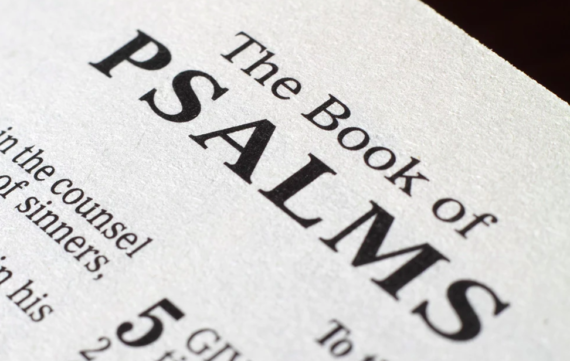O Lord, in your strength the king rejoices, and in your salvation how greatly he exults! 2 You have given him his heart’s desire and have not withheld the request of his lips. 3 For you meet him with rich blessings; you set a crown of fine gold upon his head. 4 He asked life of you; you gave it to him, length of days forever and ever. 5 His glory is great through your salvation; splendor and majesty you bestow on him. 6 For you make him most blessed forever; you make him glad with the joy of your presence. 7 For the king trusts in the Lord, and through the steadfast love of the Most High he shall not be moved. 8 Your hand will find out all your enemies; your right hand will find out those who hate you. 9 You will make them as a blazing oven when you appear. The Lord will swallow them up in his wrath, and fire will consume them. 10 You will destroy their descendants from the earth, and their offspring from among the children of man. 11 Though they plan evil against you, though they devise mischief, they will not succeed. 12 For you will put them to flight; you will aim at their faces with your bows. 13 Be exalted, O Lord, in your strength! We will sing and praise your power.
This is a Royal Psalm. Most royal Psalms sound messianic to us, but this one is not cited in the NT. It pictures the ruler’s dependence on God. The different sections of this psalm are pretty straightforward.
The first section (1-7) seems to be words the people addressed to God concerning the King and his dependence on the Lord.






The second section (8-12) seem to be words addressed by the people to the king, assuring him that the Lord would make him successful in his struggles against his enemies.
The last verse (13) returns to addressing God and praises him for his strength.
The lessons of the Psalm is also pretty clear:
Leaders are to depend on the Lord.
So, since leaders are supposed to depend on the Lord, we can write letters to the King and tell him that he ought to. If we attend a church that has elders, we can expect them to depend on the Lord.
But maybe we should ask ourselves a few questions instead. Do I depend on the Lord as I should, or is my life lived pretty much independent of him? Is my home life such as to lead others to greater dependence on the Lord? Is our congregational life centred on and dependent on the Lord? Or are we more people centred, and often self-centred than we would care to admit? In what I ask of and expect of leaders, both congregational and national, likely to lead them toward greater dependence on the Lord?
If, as I rather suspect, you find that your life, and our congregational life is not as God dependent as it should be, then we need to take some action.
Dependence is expressed and developed primarily in two ways.
The first of these is prayer. Prayer is a declaration of dependence. Or it should be. However, the Pharisee managed to make it otherwise (Lk 18:10ff), and we often manage to do so as well. Do not preach in your prayers. Never tell God what a good servants he has in us. Express dependence: need for forgiveness, guidance, correction, strength, etc. We need to pray more when we are together. We need to pray a lot more in our homes.
The second declaration of dependence is Bible study. The most arrogant behaviour I can think of is neglecting opportunities to study God’s word. Such neglect implies that the person engaging it in knows all, or at least can figure out everything without God’s help. That is not to say that everyone who opens the Bible is humble, for indeed we often find ourselves open the Bible only to prove ourselves right, instead of to hear what God has to say.
Churches need to put forth more effort regarding our Bible studies and how they are conducted. Coming better prepared. Avoiding personal opinion tangents. We also need to do more Bible study at home.
I wish that more national leaders would depend on God. I wish that more church leaders would do so. But before any of that can happen, we need to change. The church of tomorrow, the nation of tomorrow, is not going to have God-dependent leaders unless we make our home life and our congregational life more God-dependent.

